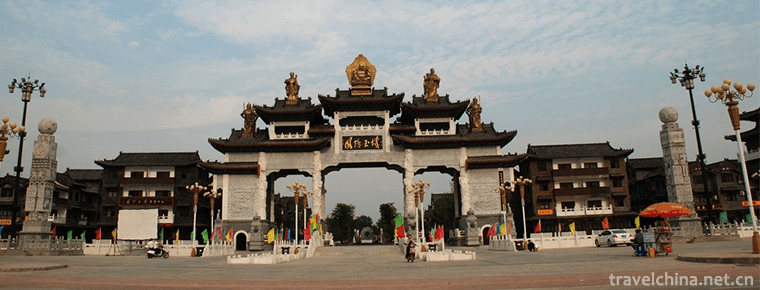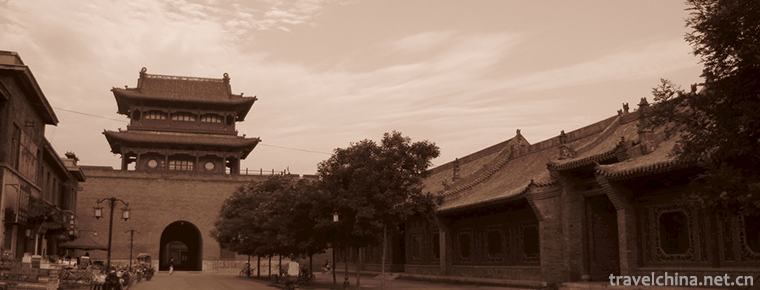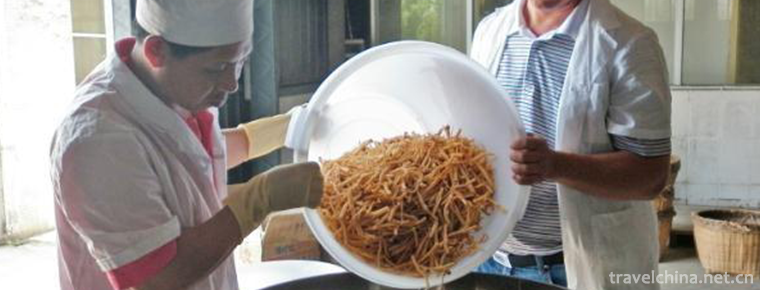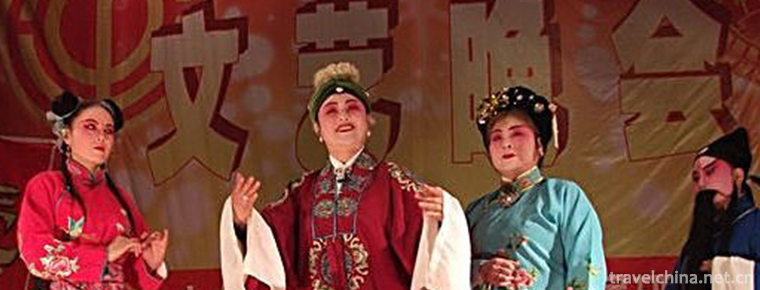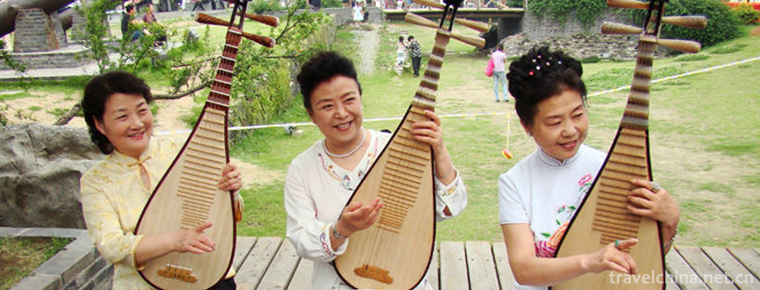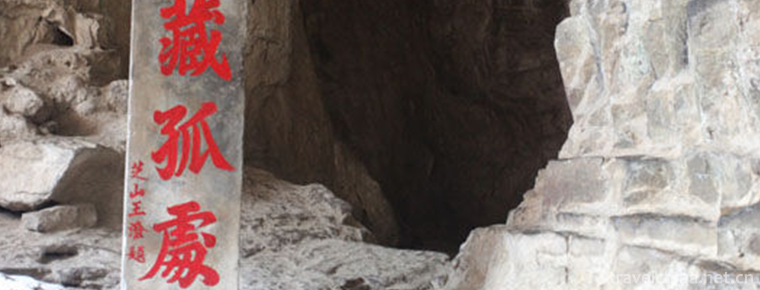Cooking Skills of Confucian Cuisine
Cooking Skills of Confucian Cuisine
The cooking skill of Confucian cuisine, the traditional handicraft of Qufu City, Shandong Province, is one of the national intangible cultural heritages.
The history of Confucian cuisine can be traced back to 272 B.C., which has been inherited and innovated from generation to generation. By the end of the 19th century and the beginning of the 20th century, Confucian cuisine had formed a unique cuisine system of color, fragrance, taste, shape, utensils and meaning.
On May 23, 2011, the cooking skills of Confucian cuisine were approved by the State Council of the People's Republic of China and listed in the third batch of national intangible cultural heritage list. Heritage No. _-206.
historical origin
1. Confucius died before the Han Dynasty
Confucius was a civilian in cloth and cloth, and his position was not noble. Although he was famous for his profound knowledge in his lifetime, his political views were not appreciated and applied by any monarch. As a result, they did not gain prominent political status and no high officials or rich salaries. Even if there are several years of official career, but the moment is fleeting. Therefore, as far as the living standard of his family was concerned, he was just a well-off family, but it was much better than the ordinary civilian family at that time. He had no luxurious house, no feudal land, and no domestic servants for housework and cooking. Therefore, at this time, the cooking and eating conditions of Confucius family were not significantly different from those of the civilians at that time. The food condition was at best better, which could not be compared with the current Confucian cuisine.
After the death of Confucius, more than two hundred years before the founding of the Han Dynasty by Liu Bang, the great ancestor of the Han Dynasty, the political situation was turbulent due to the disputes among the various countries, the war was uneven and the political situation was turbulent. Confucius'thought, except that it was disseminated by his disciples at the middle and lower levels, did not attract the attention of the ruling class, and its status was general. Only because of the respect for Confucius, the King of Lu Aigong of the State of Lu established his "living hall" as "Shoutang" and made his descendants "worship when they are old". This kind of sacrifice was a very common thing in Lu State, which followed the Zhou ritual system at that time. Therefore, in the past two hundred years, the inhabitants of Confucius'descendants still lived in the old houses of their ancestors, and their living conditions remained unchanged. There is neither a vast house nor a fine clothes and precious food. Although Confucius's descendants and their descendants worship at the age of five, it is also very simple. According to the historical records of Confucius, the disciples of Confucius and the people of Lu at that time could only "go to more than one hundred rooms from the tombs, and call Confucius by order. According to the legend of Lu Dynasty, Confucius graves were worshipped at the age of one year, and Confucians also preached ritual drinking at Confucius'home. Although the incense and incense continued, the disciples gathered to learn Confucianism and etiquette, but it was quite indifferent. From this point of view, the use of sacrificial rites is still so simple, the living conditions of Confucius descendants can also be imagined, in addition to civilian food, there is no delicate cooking.
However, during this period, because Confucius'thoughts were learned and disseminated by his disciples and the reincarnated disciples, their influence was growing. There were many people studying Confucianism and rituals, and they affected all levels of society, even the highest ruling class. As a result, Qin Shihuang burned books and pitched Confucianism, which attracted heavy persecution. However, there were still a large number of Confucianism inheritors, and there was a great potential to be developed for Confucianism. The ascertainment of later generations and the prosperity and accumulation of strength of the Confucian family.
2. Han to Wei, Jin, Southern and Northern Dynasties
The status of Confucius family changed greatly in the Han Dynasty. In 195 B.C., Liu Bang, the founder of the Han Dynasty, offered sacrifices to Confucius in Tailao in the twelfth year of Emperor Gaozu of the Han Dynasty. (Han Shu, Confucius Family) made Confucius's status recognized. It is the highest standard that emperors used to sacrifice at that time. Confucius enjoyed such a standard sacrificial ceremony, and his status and value doubled. In this way, the status of Confucius'descendants does not match it. For this reason, Confucius Teng, Liu Bangfeng's ninth generation's descendant, was dedicated to the sacrifice of Confucius as a "worship of the monarch", but it was only an empty title with low salary and was not listed as an official of the government. Therefore, his family is not much better. Up to the time of Emperor Han and Yuan Dynasty, with the establishment of the status of "depose a hundred schools of thought and respect Confucianism only", Emperor Yuan first named Confucius'12th generation Sun Confucius as "Guannei Wai", and gave 800 families in Yiyi, 200 Jin of gold and one residence area, which stipulated that they could be inherited. In the reign of Emperor Pingdi of the Han Dynasty, the number of food-eating villages was increased to 2,000. Confucius'descendants, to be exact, had a decent house from then on, and their economic situation had changed greatly. They began to pay attention to food and clothing in accordance with the dignitaries and dignitaries. In addition, officials at all levels who come to offer sacrifices should be welcomed regularly. The banquet activities used for sacrifice and reception are increasing day by day. The scale of the banquet activities has also begun to expand, and the specifications have gradually been upgraded. The culinary characteristics of the food in the scope of the Confucian government have initially taken shape. However, since the status of Confucius'descendants at that time was not different from that of ordinary officials at that time, they could only be regarded as a general aristocratic class at best, and their economic situation could not be compared with that of later generations. At this stage, the production of official dishes and banquets gradually took shape. After the Wei, Jin, Southern and Northern Dynasties, although its status did not improve, it still belonged to the "Hou" position, but its status was consolidated, laying the foundation for the development of future generations.
3. During the Tang and Song Dynasties, Confucian cuisine began to take shape.
In 739 AD, Confucius was named "King of Wenxuan" by Emperor Xuanzong of Tang Dynasty. At the same time, Confucius'35th generation descendants were promoted from "Hou" to "Wenxuan Gong". After the announcement of "saints", no mediocrity is allowed. Its social status has been fully recognized and determined, and its economic income has increased substantially. Especially after Song Renzong Zhi and his second year (1055 AD) changed Confucius'wish of the 46th generation Sun Confucius to "Yan Sheng Gong", his position became more and more prominent. In feudal society, the Duke was the senior official next only to the emperor. In addition, with the increase of economy, more and more people were paid to his colleagues, and the scale of his sacrifices was expanding day by day, and the number of sacrifices was still more frequent. The original house is no longer suitable. As a result, large-scale civil construction began to expand the Confucian government, its scale has been considerable. As a result, the number of people in the government increased and the grades were different. The sacrificial food for daily diet and preparation began to pay attention to, and the precious seafood and exotic food entered the life. At the same time, the reception of officials at all levels of various banquet activities are increasingly frequent. Therefore, the establishment of an independent cooking system was born, and the cooking system with Confucian government as its own characteristics began to take shape. After more than 600 years of development in Tang and Song Dynasty, it had a considerable scale by the end of Song Dynasty. At that time, the luxury of the banquet was comparable to that of the court. Especially after Xuanzong of Tang Dynasty offered sacrifices to Confucius personally in Qufu, it was stipulated that the sacrifices to Confucius could be suspended in palace and danced in six copies. The scale of sacrifices was second only to that of the Royal family, and the diet in the palace was also greatly improved. But unfortunately, there is no direct historical data to clarify the production of Confucian cuisine in this period. We can only get a glimpse of it from the banquet menu preserved in other materials of the Tang Dynasty.
Although the Confucian government at that time was far away from Chang'an, Kyoto at that time, it was at the time of its rising status that its official position had been quite high. It must have been very frequent contacts with the court and had certain opportunities for exchanges. Especially in the Tang and Song Dynasties, Emperors Gaozong, Xuanzong, Taizu Zhou and Renzong Song came to Qufu to worship Confucius. The banquet specifications used to receive the emperor must be luxurious and elegant. More importantly, when the emperor traveled, a large number of service personnel accompanied him, including a large number of royal cooks who cooked Royal meals, which also provided an excellent learning opportunity for the cooks of Confucian government. At this time, the cooking level of Confucian government should be quite standard, and has formed a scale, self-contained system.
4. During the Ming and Qing Dynasties, Confucius Furong was improved and perfected day by day.
Although the Confucian government in Tang and Song Dynasty had a large scale and status, it was only a royal tool set up by the ruling class for sacrificing Confucius. The "Yanshenggong" did not have administrative power and delaying function, which was limited to a large extent. However, since the Ming and Qing Dynasties, the situation has changed. Confucian government not only expanded and rebuilt on the original basis, but also formed a large-scale building complex covering more than 240 mu. Besides the sacrificial rites, Zhu Yuanzhang, the emperor of the Ming Dynasty, ordered that the "Yan Sheng Gong" have the right to set up official offices. Since then, the Confucian government has a special administrative function. Although it does not interfere in the affairs of local officials, because the status of "Yan Sheng Gong" is higher than that of local officials, its influence is considerable. At this time, the Confucian government has become a typical feudal government which integrates sacrifice, official and daily activities. Its position, power and wealth can not be compared with others. Especially in the Qing Dynasty, Confucian government and Qing officials had very close contacts, ranking first among the hundred officials. They allowed horses to ride in the Forbidden City and wore two-eyed flower feathers, and their status in the forest was beyond replication. In the meantime, great changes have taken place in cooking and catering, including not only specialized kitchens but also a team of highly skilled chefs. In addition, the kitchen also has an imperial dining room similar to the Royal palace, which is divided into an internal kitchen and an external kitchen. The production of its dishes and pasta snacks is also increasingly improved. Taking the highest "high banquet" as an example, its level is not below the "Manchu-Han Full Banquet", and its exquisite and luxurious degree is almost the same as that of the Qing Palace. According to a complete set of silver Man-Han tableware in the existing Confucian mansion, during the Qing Dynasty, Man-Han mansion served as the highest banquet of imperial meals and was also cooked in the Confucian mansion. The silver Manchu and Han tableware in Confucian Manchu is now given by Emperor Qianlong of the Qing Dynasty, totaling 404 pieces. According to the actual demonstration, 196 dishes and snacks can be served, and its luxurious style can be seen. By the end of the Qing Dynasty, Confucian cuisine with Confucian characteristics had reached perfection, forming a complete cooking system - Confucian cuisine from home dishes to banquet dishes, from general raw materials to high-grade dishes.
Process characteristics
Cooking skills
The cooking skills of Confucian cuisine and traditional famous dishes are inherited from generation to generation. It has been handed down from generation to generation and lasts forever. The main reason for the formation of Confucian cuisine is that the members of Confucian government in the past dynasties, adhering to Confucian food is not tired of refinement, not tired of detailed training, vegetarian food. The production of dishes is very exquisite, requiring not only fine material, careful preparation, strict fire, and attention to taste, but also skillfully changing the seasoning, should be fresh, to satisfy their taste. Since the Western Han Dynasty, the political status of the descendants of Confucius has been promoted. In the Ming and Qing Dynasties, Yan Sheng Gong once lived in an official residence. He was the first civil servant in the class. He enjoyed the honor of carrying his family to the court. The emperor made pilgrimages and offered sacrifices frequently. Every time the members of the royal family came to Qufu, they would take over with a feast. As for the arrival of high-ranking officials, the Confucian government should also set up high-ranking banquets. For a long time, because of the restriction of the concept of family status, most of the family members in Confucian government came from the official families in various places. The courtesy exchanges between them have brought together all the famous dishes of various families, each with its own characteristics, which are mutually beneficial. The extensive social activities of Confucian government and the frequent changes between internal and external cooks promoted the continuous exchanges of cooking skills between Confucian government and palace, between Confucian government and official government, and between Confucian government and folk. In addition, for thousands of years, famous cooks and skillful cooks of Confucian government have made great efforts to inherit the old system and innovate on the basis of inheriting traditional skills, thus gradually forming their own style, rich and perfect, color, fragrance, taste, shape and fearful dishes of Confucian government.
Materials used
Confucian cuisine uses a wide range of ingredients, from high to precious seafood, low to melons, fruits, vegetables, peppers or wild vegetables in mountain forests, etc., can be cooked to produce delicious vegetables. Confucian cuisine is exquisite in workmanship, good at seasoning, exquisite in serving utensils and comprehensive in cooking techniques. In many techniques, especially burning, stir-frying, simmering, leaning, frying, pickling. Its flavor is light, fresh and tender, soft and fragrant. And the utensils and dining tables and chairs are luxurious and exquisite. There are 404 pieces of silver tableware given by the imperial court alone.
Inheritance and protection
Inheritance value
The formation of Confucian cuisine not only directly affects the formation of Shandong cuisine in the four major Chinese cuisines, but also enriches Confucian culture by absorbing the characteristics of court cuisine and collecting the essence of local cuisine in different parts of the country because of the political and economic status of Confucian cuisine in the history of "Guoxianxiu". Connotation and expanding the external influence of Confucian culture have important historical significance and contemporary value.
Inheritance status
Over the past two thousand years, the historical accumulation of food culture has contributed to the profound cultural connotation of Confucius'banquet. Every detail contains Confucius' thoughts, including the arrangement of seats according to class and the naming of dishes according to important principles. Just like Confucianism, cooking also pursues a delicate balance, combining different tastes, ingredients and cooking techniques. The idle generation could not arrange the orthodox Confucian banquet. The inheritance of Confucian cuisine in the South inherits the old way of teaching from teacher to apprentice, from family to family, and from mouth to heart. Very few of them really have written recipes. With the changes of the times, before liberation, a group of top chefs had gone to Taiwan with Comte Cheng. Some of the old chefs left behind had changed their professions and some had broken down their inheritance. As a result, many of Confucian cuisine has reached a state of endangerment, facing the loss of the Internet.
Inheriting characters
Peng Wenyu, male, Han, from Qufu City, Shandong Province. On December 28, 2017, Peng Wenyu was selected as the representative successor of the fifth batch of national intangible cultural heritage projects, which was declared by Qufu City, Shandong Province.
protective measures
Wang Xinglan, a master of Shandong cuisine, not only excels in cooking, but also has great achievements in the research of Shandong cuisine. She is a rare female master among chefs. With her efforts, "Confucius Fulai", which is about to be lost for thousands of years, has come out again, and has gone to the world with the charm of Confucius culture.
In 1981, the Ministry of Commerce launched a plan to rescue and excavate "Confucius cuisine" based on the destruction of Confucius culture during the long history and "ten years of civil strife". Wang Xinglan, who has studied Shandong cuisine, joined the research team of "Confucian cuisine" organized by the State Ministry of Commerce and the Provincial Department of Commerce. He is specifically responsible for the production, testing and finishing of "Confucian cuisine".
social influence
Honorary commendation
In 1984, Confucian cuisine was officially appraised by the State Science and Technology Commission as a national scientific and technological achievement and won the Science and Technology Innovation Award.
social activities
On July 8, 2018, the Conference on the Inheritance and Development of Confucian Cuisine in Qufu, China was held in the hometown of Confucius. The purpose of this conference is to inherit Confucius'dietary concept of "never tire of refinement, never tire of fineness", inherit and develop Confucian dietary culture, dig and sort out traditional Confucian cuisine, promote new Confucian cuisine, so that Confucian cuisine can enter the public and be close to people's lives.

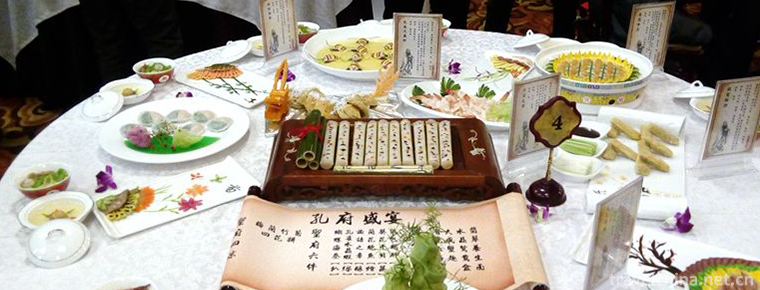
-
JW Marriott Hotel Shenzhen
JW Marriott Shenzhen Jinmao Hotel is invested by China Jinmao (Group) Co., Ltd. and managed by Marriott International Co., Ltd. Located in Futian Business Center, Shenzhen, it is only a few steps away.
Views: 368 Time 2018-12-16 -
the Capital Cities and Tombs of the Ancient Gaogouli Kingdom
Gaogouli is located in Ji'an City, Jilin Province. It includes domestic cities, Wandu Mountain City, 14 Royal mausoleums and 26 noble tombs. Domestic city and Wandu Mountain City .
Views: 116 Time 2019-01-12 -
International Jade City
International Yucheng is located in the south of Shifosi Town, Zhenping County, Henan Province, on the south side of Yuyuan Avenue, south to Liulu Highway, east to Erlong Road, north to Longxiang Road.
Views: 141 Time 2019-01-13 -
Hailing Island Dajiao Bay Sea Silk Road Tourist Area Yangjiang City
Dajiaowan Scenic Area of Hailing Island in Yangjiang is located in Zhapo Town of Hailing Island, Yangjiang City, Guangdong Province..
Views: 103 Time 2019-01-13 -
Pingyao Ancient City Scenic Spot
Pingyao Ancient City is located in Pingyao County, central Shanxi Province. It was founded in Xuanwang Period of Western Zhou Dynasty (827-782 BC)..
Views: 144 Time 2019-02-07 -
Construction Skills of Felt House of Kazakh Nationality
Kazakh mattress building skills, Xinjiang Uygur Autonomous Region Tacheng area local traditional skills, one of the national intangible cultural heritage..
Views: 459 Time 2019-05-02 -
Traditional Brewing Techniques of Brewing Wine
Chrysanthemum wine is a necessary drink for Chongyang Festival. It has a long history of brewing. Royal chrysanthemum liquor of Ming and Qing Dynasties was a kind of precious liquor created on the bas.
Views: 140 Time 2019-06-09 -
Uygur Dastan
Uygur Dastan is a kind of Uygur singing and playing music. It is a kind of long narrative poem with rap and singing. It is a long poem with complete stories and characters. It is a folk art form with .
Views: 137 Time 2019-06-26 -
Xihe Opera
Xihe Opera, also known as Xingzi Xihe Opera, is a traditional opera popular in Xingzi, De'an and Jiujiang counties and cities of Jiangxi Province. Its main vocal cavity is Pihuang, also known as ".
Views: 124 Time 2019-07-01 -
Yangzhou Tanci
Yangzhou's performance of ci-poems is mainly based on speech and supplemented by singing and playing. The representative bibliographies are "Double Gold Ingot", "Pearl Tower", &quo.
Views: 364 Time 2019-07-10 -
Legend of Zhaos Orphans
Zhao's orphan legend is one of the folk legends in Shanxi Province. In the folk of Yuxian County, the legends about Zhao's orphans are handed down orally and orderly. Every year, there are more than 1.
Views: 189 Time 2019-07-25 -
Beijing Normal University
Beijing Normal University is a key university directly under the Ministry of education. It is a famous university characterized by teacher education, educational science and liberal arts basic subject.
Views: 177 Time 2019-09-06


